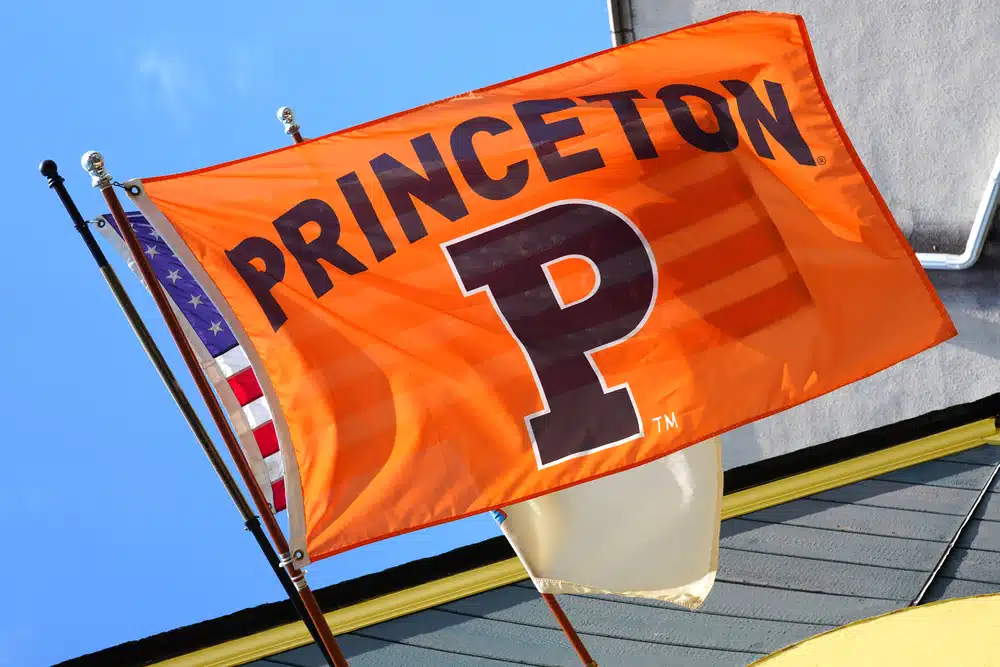Accepted to Princeton: Now What?
When it comes to attending a prestigious undergraduate college or university, it doesn’t really get any better than Princeton University. Not only is Princeton in the Ivy League, but it is also actually in an elite group within the Ivy League known as the “Big Three.” The “Big Three” is made up of Princeton, Harvard and Yale. These schools are considered three of the most historic, prestigious and competitive schools in the entire world. So, if you’ve been accepted to Princeton, you know for certain that you have done something right!
However, the job is far from over. Getting accepted to Princeton – or a similarly prestigious school – means that the hard work has just begun. If you are one day planning on applying to Princeton, then you are going to want to know a lot about what you can expect from the admissions process and what to do after getting accepted to Princeton.
One of the very best ways for students to improve their chances of getting into a top school like Princeton is to learn about the specific attributes and characteristics that the admissions committees at these kinds of schools look for in first-year applicants.
By learning these tools, students can then make sure to accentuate their application resume to make themselves as attractive as possible in the eyes of the admissions officers. Of course, this does not mean basing an entire application off of what a student thinks a school’s admissions committee wants to see, but it can be a great roadmap to follow. In the end, knowledge and application tips and tools simply lead to a more improved and refined strategy.
After all, one of the most important parts of getting into a top school is proving to the people who made admissions decisions that you will not only be able to handle the intense academic responsibilities, but also will thrive within the schools’ community and on its campus. Getting great grades at any Ivy League school is not enough, you will also want to stand out by contributing to Princeton’s incredible legacy.
That is where AdmissionSight can come in to help! As admissions consultants, we make it our primary goal each school year to help the students that we work with to put themselves in the best position possible to get into the schools of their dreams.
For some students, this means working with us for years to help establish the best high school curriculum, identify what extracurriculars to invest most time and energy in and more. For other students, it simply means working with us throughout the application process to make sure that the application itself, personal essays, letters of recommendation and more reflect as positively as possible on the student!
Our dedication to this job is one of the many reasons why 75 percent of the students that we have worked with have ended up getting into either an Ivy League institution or a top-10 school out of the Ivy League such as UChicago or MIT.
So, if you are curious about how Princeton admissions work or what to do after getting accepted to Princeton, then you have come to the right place. Continue reading to learn more about the most important things to know about applying and getting into Princeton, as well as what students should be aware of and keep in mind when they actually end up getting in!
How Princeton admissions work
When it comes to the admissions process at Princeton, it is important for students to know the ins and outs of the school’s admissions process. For that reason, we have broken down some of the most common questions that students have about how Princeton’s admission process works.
Let’s get into it:
Are minimum grade point averages, class ranks, and test scores required at Princeton?
The simple answer to this question is no. While Princeton does – of course – consider all of these factors when looking at a student’s application profile, there are a lot of other aspects to a student’s chances to get into Princeton. These attributes alone are not going to get someone into Princeton on their own, however. The application process at Princeton is holistic, meaning the school uses much more than grades and test scores to decide whether a student is a good fit at the school.
Can students improve their chances of getting into Princeton with honors, AP or IB courses?
Students can absolutely improve their chances of getting into Princeton – or really any college or university – by taking honors, AP or IB classes in high school. The reason for this is because these types of courses are harder than typical high school classes.
They are also often modeled after introductory undergraduate-level courses. While the admissions committee at Princeton does understand that not all secondary schools offer advanced courses, admissions officers certainly note that the majority of the strongest candidates do take full advantage of the academic opportunities that are available to them in high school.
What does Princeton look for in its applicants?
The truth is that Princeton has no specific checklist that applicants need to fulfill in order to offer a student a spot in an upcoming graduating class at Princeton. Every student’s application is reviewed individually so that the admissions committee can get a sense of the student’s strengths and past accomplishments. While very applicant is unique and different from one another, and while the school does not look one particular kind of student, there are some key characteristics that Princeton admissions officers love to see in its applicants:
- Personal integrity
- Academic curiosity and a deep interest in learning
- Devotion to academic and non-academic pursuits
Beyond that, it is a simple fact that students who go on to get into Princeton and succeed greatly at the school received distinctive academic and extracurricular talents and achievements during their high school years.
When are applications due?
This is a pretty important one to keep in mind for any student who has hopes of getting into Princeton. After all, you won’t have any chance of getting into Princeton if you send in your application late!
- Single-Choice Early Action applications are due on November 1st
- Regular Decision applications are due on January 1st
It is also important to know that if you will need financial aid from the school to attend, your application due date for financial aid is February 1st.
There are two different times in which students can expect to hear back from Princeton depending on how they apply. Early Action applicants can expect to hear back sometimes in the middle of December. Regular Decision applicants will hear back from the school on March 31. Both types of applicants by May 2nd to reply to the school.
Will applying for financial aid hurt my ability to get in?
For students who have dreams of attending top schools, the issue of how to pay for the education can be one that weighs on them heavily. On top of that, the fear that the need for financial aid could hurt their chances of getting in. However, the truth is that needed financial aid will never get in the way of a deserving student’s chances of getting into Princeton. The school has a need-blind policy, making sure that equality of opportunity is afforded to students who can both pay for the high tuition at Princeton and for those that cannot.
Things to do after getting into Princeton
Before we offer some tips on what any student should do after they get accepted to Princeton’s undergraduate program, we wanted to just spend a little bit of time covering the current acceptance rate at the school.
As you already know, Princeton is one of the most prestigious and competitive schools in the United States. For that reason, the vast majority of students that apply to the school unfortunately do not end up getting offered a spot in the incoming graduating class.
While the school decided to withhold the numbers related to the graduating class of 2026, which will be made up of students that applied and got into the school during the 2021-22 application cycle, we do have information on the previous year.
The acceptance rate for the 2025 graduating class was a highly competitive 3.98 percent. Given what we know about the 2021-22 application cycle, and that it was the most competitive for many schools in the United States, we can safely assume that the class of 2026 at Princeton dealt with either the all-time lowest or one of the all-time lowest acceptance rates on record at the school.
All that to say, if you end up getting accepted to Princeton, you will have accomplished something that an incredibly small percentage of applicants accomplish. And as we said earlier, that is just the beginning of the journey.
In order to help you get more familiar with what it’s going to be like going to this school now that you have been accepted to Princeton, we thought we would break down some of the important things for people getting accepted to know about!
Getting accepted is not the same as graduating
For a lot of highly driven students, there is obviously a lot of emphasis put on the ability to get into a top school like Princeton. However, it is really important to remember that this is the beginning of the hard work, not the end. Princeton is an incredibly demanding school to attend, and you are going to have to work really hard to make sure that you earn great grades and set yourself up really well for whatever you plan to do after your undergraduate education.
So, once you get in, you should start to look forward to your first semester at school and consider what courses you will want to enroll in, what your primary concentration might be, and how you are going to make sure that you can accomplish your goals at Princeton both inside and outside of the classroom.
Princeton doesn’t really offer the classic “Greek Life” experience
One thing that some people very much look forward to is the “classic” college experience that includes fraternities or sororities, big parties and even bigger football Saturdays. While there are Dining Clubs at Princeton and a fair amount of school spirit, the Ivy League experience is definitely not the same as a big state school.
Princeton prides itself on offering its students the chances to be part of smaller and intimate communities within the university as well as much more intimate learning environments as well. The average class size at Princeton tends to be between 30 and 40 students each year, which makes it possible for students to not only get to know their fellow classmates quite well, but also the faculty members that are teaching them.
The student body is genuinely supportive
While there is obviously a lot of healthy competition within the student body at Princeton, it should come as good news to you that the student body is known to be quite supportive. Freshman at Princeton understandably deal with a bit of culture shock during their first few weeks or months at the school, but upperclassmen have been known to be very helpful and supportive.
Whether it’s helping students find their classes, or introducing them to new and exciting opportunities that take place on campus, students can always depend on one another to help lead them in the right direction.
Princeton’s diversity is one of the most diverse campuses in the United States
When people think of Princeton – or really the ivy League in general – an image typically pops into their head of the typical Ivy League student. To put it simply, the image of a “typical” Ivy Leaguer is a wealthy, white male. Admittedly, that was the case for many years, and still for the majority of the time that the Ivy league has existed. But a lot is changing at Princeton and the other seven Ivy League schools, and diversity within the student body is absolutely one of the most important issues that the schools’ admissions committees pay attention to.
These days, Princeton is doing a great job at making sure that students from all over the world and from many different kinds of backgrounds are getting the chance to earn the Ivy League education that they deserve. It has one of the most diverse college campuses and is thought to be the best college in the United States for international students.
Students from all over the world, and from all kinds of socioeconomic, ethnic and religious backgrounds call Princeton home. No matter who you are or where you’re from, you are sure to meet some people like you, and many people not like you, during your time at Princeton. Right now, about 42 percent of the graduates at Princeton are non-white.
Princeton is not for everyone
While Princeton is absolutely one of the best schools in not only the United States, but also the entire world, the competitive nature of the educational experience at this school is definitely not for everyone. People can be overwhelmed by the experience of studying at an Ivy League and some students do decide to transfer out.
At Princeton, the retention rate – which refers to the number of students that start as first-year students and end up graduating from the same school – is at about 83 percent. This is fairly low compared to many schools in the United States, and is even low compared to the majority of the ivy League.
Interestingly, the two other schools in the Ivies with relatively low retention rates are Harvard and Yale with a 76 percent retention rate and a 65 percent retention rate, respectively. Truthfully, this likely reflects just how difficult and competitive these schools truly are. Though they are not for everyone, they can offer the right kind of students the very best education possible.
Congrats on your Princeton admission!
So there you have it! If you plan on one day applying to Princeton, you will surely want to know all of this and more in order to give yourself the best chances at getting into this highly impressive school. While information on its own will not get you in, knowing the tools and tips regarding the school specifically will absolutely help you.
Getting into Princeton is one of the hardest things a student applying to colleges and universities can do! For that reason, it is absolutely a time to celebrate and look forward to your future education. However, the work is far from over! If you are interested in learning more about what to do once you get in, or simply want to figure out how to best improve your chances of getting accepted to Princeton, contact AdmissionSight today to schedule a free consultation.










































